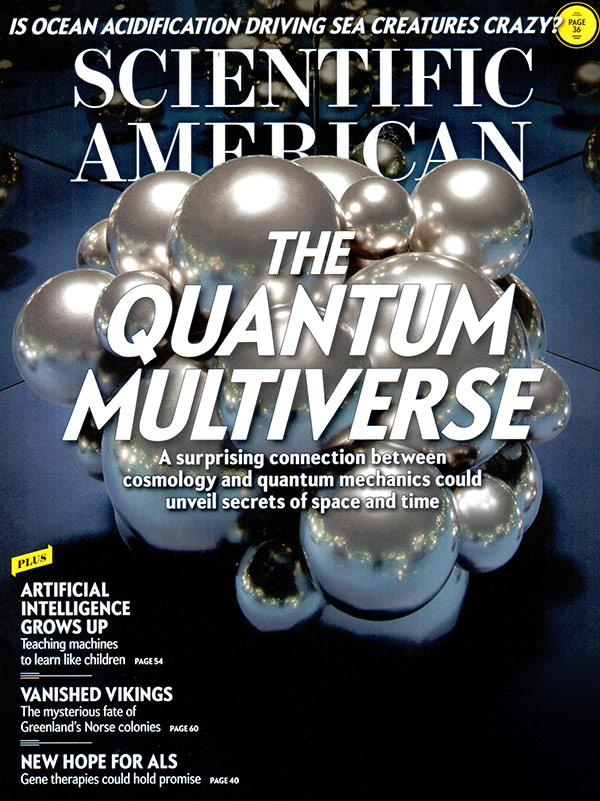Did an advanced civilization disappear more than 12,000 years ago?
Graham Hancock is an audacious autodidact who believes that long before ancient Mesopotamia, Babylonia and Egypt there existed an even more glorious civilization. One so thoroughly wiped out by a comet strike around 12,000 years ago that nearly all evidence of its existence vanished, leaving only the faintest of traces, including, Hancock thinks, a cryptic warning that such a celestial catastrophe could happen to us. All this is woven into a narrative entitled Magicians of the Gods (Thomas Dunne Books, 2015). I listened to the audio edition read by the author, whose British accent and breathless, revelatory storytelling style are confessedly compelling. But is it true? I’m skeptical.
First, no matter how devastating an extraterrestrial impact might be, are we to believe that after centuries of flourishing every last tool, potsherd, article of clothing, and, presumably from an advanced civilization, writing, metallurgy and other technologies— not to mention trash—was erased? Inconceivable.
Second, Hancock’s impact hypothesis comes from scientists who first proposed it in 2007 as an explanation for the North American megafaunal extinction around that time and has been the subject of vigorous scientific debate. It has not fared well. In addition to the lack of any impact craters determined to have occurred around that time anywhere in the world, the radiocarbon dates of the layer of carbon, soot, charcoal, nanodiamonds, microspherules and iridium, asserted to have been the result of this catastrophic event, vary widely before and after the megafaunal extinction, anywhere from 14,000 to 10,000 years ago. Further, although 37 mammal genera went extinct in North America (while most other species survived and flourished), at the same time 52 mammal genera went extinct in South America, presumably not caused by the impact. These extinctions, in fact, were timed with human arrival, thereby supporting the more widely accepted overhunting hypothesis. (continue reading…)
read or write comments (2)
Why Freedom of Inquiry in Science and Politics is Inviolable
This article appeared in the Journal of Criminal Justice in May 2017.
In the 1990s I undertook an extensive analysis of the Holocaust and those who deny it that culminated in Denying History, a book I coauthored with Alex Grobman (Shermer & Grobman, 2000). Alex and I are both civil libertarians who believe strongly that the right to speak one’s mind is fundamental to a free society, so we were surprised to discover that Holocaust denial is primarily an American phenomenon for the simple reason that America is one of the few countries where it is legal to doubt the Holocaust. Legal? Where (and why) on Earth would it be illegal? In Canada, for starters, where there are “anti-hate” statutes and laws against spreading “false news” that have been applied to Holocaust deniers. In Austria it is a crime if a person “denies, grossly trivializes, approves or seeks to justify the national socialist genocide or other national socialist crimes against humanity.” In France it is illegal to challenge the existence of “crimes against humanity” as they were defined by the Military Tribunal at Nuremberg “or in connection with any crime within the jurisdiction of the Tribunal, whether or not in violation of the domestic law of the country where perpetrated.” The “Race Relations Act” in Great Britain forbids racially charged speech “not only when it is likely to lead to violence, but generally, on the grounds that members of minority races should be protected from racial insults.” Switzerland, Belgium, Israel, Italy, New Zealand, and Sweden have all passed similar laws (Douglas, 1996). In 1989 the New South Wales parliament in Australia passed the “Anti-Discrimination Act” that includes these chilling passages, Orwellian in their implications: (continue reading…)
Comments Off on Giving the Devil His Due
Why torture doesn’t work

As recounted by author and journalist Daniel P. Mannix, during the European witch craze the Duke of Brunswick in Germany invited two Jesuit scholars to oversee the Inquisition’s use of torture to extract information from accused witches. “The Inquisitors are doing their duty. They are arresting only people who have been implicated by the confession of other witches,” the Jesuits re ported. The duke was skeptical. Suspecting that people will say anything to stop the pain, he invited the Jesuits to join him at the local dungeon to witness a woman being stretched on a rack. “Now, woman, you are a confessed witch,” he began. “I suspect these two men of being warlocks. What do you say? Another turn of the rack, executioners.” The Jesuits couldn’t believe what they heard next. “No, no!” the woman groaned. “You are quite right. I have often seen them at the Sabbat. They can turn themselves into goats, wolves and other animals…. Several witches have had children by them. One woman even had eight children whom these men fathered. The children had heads like toads and legs like spiders.” Turning to the flabbergasted Jesuits, the duke inquired, “Shall I put you to the torture until you confess?”
One of these Jesuits was Friedrich Spee, who responded to this poignant experiment on the psychology of torture by publishing a book in 1631 entitled Cautio Criminalis, which played a role in bringing about the end of the witch mania and demonstrating why torture as a tool to obtain useful information doesn’t work. This is why, in addition to its inhumane elements, torture is banned in all Western nations, including the U.S., whose Eighth Amendment of the Constitution prohibits “cruel and unusual punishments.” (continue reading…)
read or write comments (29)
Dear President Trump:
Fifty-five years ago this week President John F. Kennedy hosted a dinner honoring Nobel Prize laureate scientists, remarking:
I think this is the most extraordinary collection of talent, of human knowledge, that has ever been gathered together at the White House, with the possible exception of when Thomas Jefferson dined alone.
In fact, Kennedy added, the author of the Declaration of Independence and 3rd President of the United States “could calculate an eclipse, survey an estate, tie an artery, plan an edifice, try a cause, break a horse, and dance the minuet.”
From the earliest days of our nation, science has been at the forefront of what makes America great. Thomas Jefferson, Thomas Paine, Benjamin Franklin, James Madison, John Adams and many of the other founding fathers were either practicing scientists or were trained in the sciences. They deliberately adapted the scientific method of gathering data, running experiments, and testing hypotheses to their construction of our nation. Their understanding of the provisional nature of findings led them to develop a political system in which doubt and disputation were the centerpieces of a functional polity.
(continue reading…)
read or write comments (4)
IMAGE ABOVE: The Bruder Klaus Field Chapel, Mechernich, Germany (near Köln), built 2005–2007 following the plans of the Swiss architect Peter Zumthor. Photograph by Michael Shermer
For the world’s two billion Christians, Easter marks the resurrection of Jesus after his crucifixion death at the hands of the Romans. It is the resurrection that sets Christians apart from all other religions. In fact, as denoted in 1 Corinthians 15: 13–14: “But if there is no resurrection of the dead, then not even Christ has been raised. And if Christ has not been raised, then our preaching is in vain and your faith is in vain.”
Did Jesus die and come back to life? In the parlance of current events, is this a fake news story, an alternative fact invented by the followers of Jesus, or did it really happen?
As a scientist who was once a born-again evangelical Christian I have given this question much thought. Although I am no longer a religious believer, I think there is reasonable evidence that a man named Jesus probably did exist, and that there are good reasons to believe he was crucified by the Romans, which was a common tool of capital punishment at the time, employed against even common thieves, such as the two men crucified on either side of Jesus. Whether or not Jesus “died for our sins” is a pure theological dogma untestable by science, but the matter of his resurrection is open to scrutiny. There are reasons to doubt the claim.
First, Jews and Muslims, along with the world’s other four billion religious people, do not believe in the resurrection of Jesus. This is especially noteworthy in the other Abrahamic religions, given that Jews and Muslims worship the same God. And although the veracity of a truth claim is not determined by majority rule, if there were compelling evidence for this all-important event wouldn’t it at least convince some in a few other religions? That Jewish Rabbis and Muslim Clerics are so well educated and professionally trained in the art of evaluating arguments and evidence speaks volumes to their skepticism of the resurrection. (continue reading…)
read or write comments (15)



